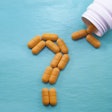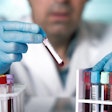Dear LabPulse Member,
Those who care about the quality of lab medicine received some good news yesterday with a policy shift from the U.S. Food and Drug Administration (FDA) on the regulation of serology tests for the novel coronavirus.
The FDA has revised its policy on antibody tests, imposing stricter requirements on commercial manufacturers filing for emergency use authorization (EUA) with validation data and setting performance threshold requirements. Previously, the agency had a loose policy on antibody tests, which led to the flooding of the U.S. market with new products, including those of dubious quality.
The American Association for Clinical Chemistry (AACC) is among the organizations and experts that have been speaking out about commercial serology tests and calling for more oversight by the FDA. In addition to the market entry of products that may or may not have been validated, there are concerns generally about antibody testing, including potential for false-negative results, which may give false hope for employees to return to work as part of plans for reopening the U.S. state economies. In a blueprint for reopening published last week, the White House put the onus of validating antibody tests on states and suggested that test accuracy could be improved by "aggregating two successive tests under certain circumstances."
According to a May 4 report by the World Health Organization (WHO), more than 3.4 million COVID-19 cases have been confirmed globally, including more than 239,000 deaths. This includes more than 1.1 million cases in the U.S., with more than 60,000 deaths. U.S. states are in varying stages of reopening. In an editorial just published in JAMA Internal Medicine, Yale University's Dr. Robert Steinberg described a "remarkable" report from Taiwan that documented extensive testing and tracing of contacts and suggested there are lessons to be learned on COVID-19 control for the U.S. and other countries throughout the world.
With COVID-19 dominating the news for many weeks, we could all be forgiven for missing developments in other critical areas of medicine. But non-COVID-19 diagnostic product launches and developments are a good sign for the future market by test vendors, particularly in oncology, which is a very important sector for major IVD firms, reported Bruce Carlson, publisher of Kalorama Information, a sister company of LabPulse.com.
The American Association for Cancer Research (AACR) featured a large study of an investigational multicancer liquid biopsy test (Thrive Earlier Detection) in a plenary session at its virtual meeting in late April and the results look very promising, though the product is in early stages of development. We will be on the lookout for liquid biopsy and companion diagnostic news at the upcoming American Society of Clinical Oncology (ASCO) virtual meeting, slated for May 29-June 2.
Finally, we are happy to feature a new pathology case study. This one was submitted by Dr. Abdul Abid, University of Texas Medical Branch, and it presents the history of a 63-year-old man with elevated aminotransferases. The patient had imaging suggestive of cirrhosis and underwent a partial hepatectomy. Can you make the diagnosis?
LabPulse just had its one-year birthday in April -- alas, under lockdown in San Francisco with no in-person visitors, yet it was still momentous -- and I'm looking forward to building our library of pathology cases over time, with help from this community we are fostering. Please let us know what topics you are most interested in and would like to see more coverage of by emailing [email protected].



















